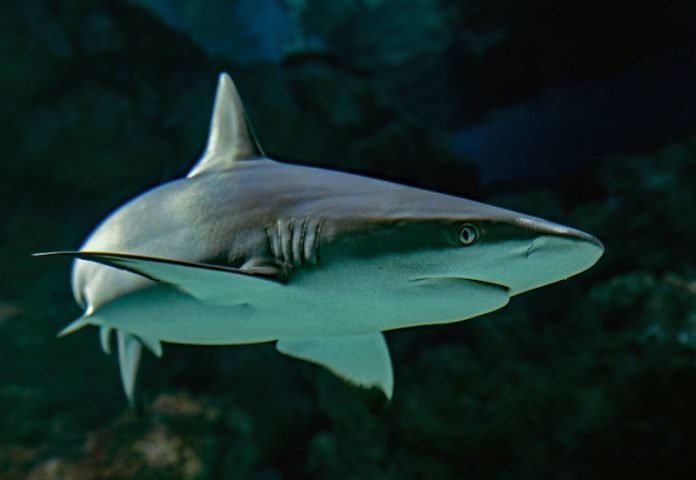
Fossil evidence suggests that sharks first existed 420 million years ago, predating humanity, Mount Everest, and even trees.
Over the course of time, sharks and other fish with cartilage skeletons developed what is now believed to be the oldest adaptive immune system in the animal kingdom.
Scientists from the University of Wisconsin and elsewhere found these ancient predators and their prehistoric immune systems may also be key to developing effective COVID-19 treatments.
They showed that variable new antigen receptors (VNARs), the smallest unit of a shark antibody, can stop the COVID-19 virus and its variants.
The research is published in Nature Communications and was conducted by Professors Aaron LeBeau et al.
An antibody, whether human or shark, binds to a virus protein when a region of molecules called amino acids from the antibody encounters a similar region on the virus protein.
In humans, these amino acid regions tend to only bind one flat surface to another, just as a sticker would adhere to a bowling ball.
In sharks, the VNARs’ amino acids bind not only to flat parts of a target protein but also bind snugly inside deeper grooves.
This means that instead of sticking only to the surface of the bowling ball, shark VNARs could bind tightly and flexibly into the ball’s finger holes as well.
This heightened molecular dexterity means shark VNARs can access pockets in the SARS-CoV-2 spike protein that existing human antibodies cannot.
Functionally, however, the shark VNARs proved highly stable, as effective as or better than current treatments for COVID-19, and resilient to the changing structures of variants.
This may help in the development of new treatments for SARS-CoV-2 variants, such as delta and omicron.
The VNARs also showed promise as therapeutics for other known beta coronaviruses and future emergent diseases.
They appear able to identify and bind to regions of amino acids that are the same among different coronaviruses.
The small size of the VNARs, their resilience, and their cost-effective availability are all reasons why the researchers believe there is more to learn from the study of shark adaptive immune systems.
The team says it may even be possible to formulate VNAR “cocktails” to treat SARS-CoV-2 infection in individuals who are already infected or who are at immediate high risk of infection.
Such a therapy would not replace vaccination, but it would be a useful tool for critically ill patients.
If you care about COVID, please read studies about a new way to prevent many COVID-19 variants, and new drug combo can effectively treat COVID-19 infection.
For more information about COVID, please see recent studies about a new drug that could prevent COVID-19, and results showing green tea may protect your body as a vaccine.
Copyright © 2022 Knowridge Science Report. All rights reserved.



